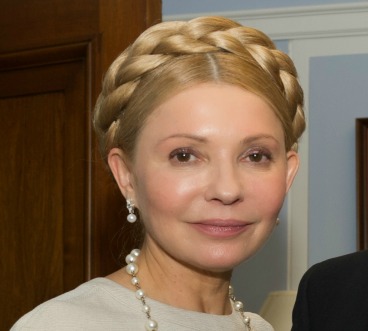Madam President. I would like to address the current situation in Ukraine, an important country in the heart of Europe, a bellwether for democratic development in the region, and the current Chairman-in-Office of the OSCE.
Let me first welcome the release from prison Sunday of former Ukrainian Minister of Internal Affairs and leading opposition figure Yuri Lutsenko. Mr. Lutsenko had been convicted on politically motivated charges and incarcerated since December 2010. President Yanukovych’s pardon of Mr. Lutsenko is an encouraging step in the right direction. I also welcome the pardon of former Environment Minister Heorhiy Filipchuk, who also served as a member of Ms. Tymoshenko’s Cabinet and had been released last year after his sentence was suspended. By pardoning Mr. Lutsenko and Mr. Filipchuk, President Yanukovych is indicating not only a willingness to resolve what has been a major irritant in Ukraine’s relations with the United States and the EU, but also a stain on Ukraine’s democratic credentials.
At the same time, I remain deeply concerned about the politically motivated imprisonment of Ukrainian opposition figure and former Prime Minister Yulia Tymoshenko, who has been incarcerated since August 2011.
Mrs. Tymoshenko’s case stands out as a significant illustration of Ukraine’s backsliding with respect to human rights, democracy, and the rule of law since she was defeated by President Yanukovych in February 2010. The United States, EU, and Canada have repeatedly expressed concerns about the application of selective justice against political opponents, their flawed trials, conditions of detention, and the denial of their ability to participate in last October’s parliamentary elections.
As Chairman of the Helsinki Commission, which has long been committed to Ukraine’s independence and democratic development, I am especially mindful of Ukraine’s 2013 OSCE chairmanship. Like any Chair-in-Office, Ukraine faces formidable tasks in leading a multilateral organization that operates on the basis of consensus, which includes 57 countries ranging from mature democracies to oppressive dictatorships. The United States wants Ukraine to succeed, but the reality is that the politically motivated imprisonment of Ms. Tymoshenko casts a cloud over its chairmanship. A Chair-in-Office must itself have strong democratic credentials if it is to succeed in encouraging reform in other countries.
Furthermore, democratic regression in Ukraine has harmed U.S.-Ukrainian bilateral relations, preventing a traditionally strong partnership from realizing its full potential. It has also slowed down the process of Ukraine’s drawing closer to the EU, which is that country’s stated foreign policy priority, manifested in the still-delayed signing of the EU-Ukraine Association Agreement. More than half a year has gone by since the unanimous adoption of S. Res. 466, calling for the release of Yulia Tymoshenko.
The Ukrainian authorities now need to follow up on the important step they have taken in freeing Yuri Lutsenko. They need to free Ms. Tymoshenko and restore her civil and political rights. By demonstrating commitment to the rule of law and human rights principles embodied by the OSCE, Ukraine will strengthen the credibility of its chairmanship and show it is serious about being a full-fledged member of the democratic community of nations.
I strongly urge the Ukrainian government to resolve the case of Ms. Tymoshenko.












